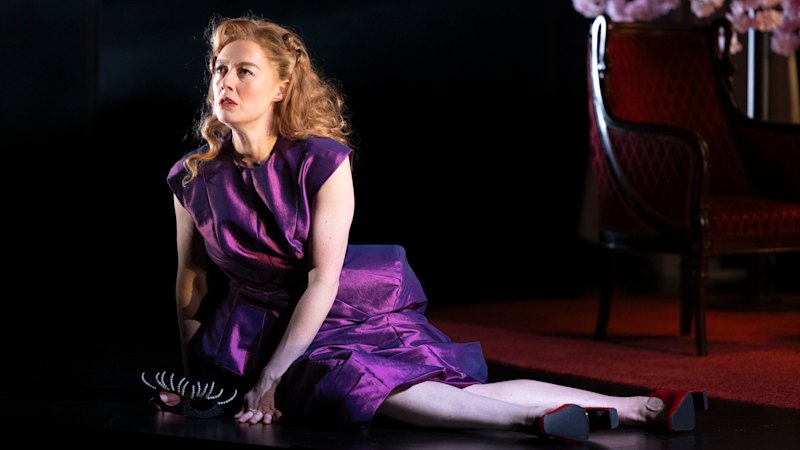
The Melbourne Theatre Company presents an engaging adaptation of Rebecca, a Gothic thriller based on Daphne du Maurier’s iconic novel. The production runs at the Sumner Theatre until November 5, 2023, promising audiences a blend of suspense and intrigue that only live theatre can offer.
This adaptation follows the success of another du Maurier classic, The Birds, which was performed at the Malthouse Theatre earlier this year. Both works have garnered acclaim as bestsellers, and their film adaptations by Alfred Hitchcock remain celebrated. The challenge for theatre lies in what unique elements can be introduced to these renowned stories.
In Rebecca, directed by Anne-Louise Sarks, the production showcases elegant design and a strong cast that brings depth to this romantic thriller. The story unfolds as an unnamed young woman, portrayed by Nikki Shiels, encounters the grieving aristocrat Maxim de Winter, played by Stephen Phillips, in Monte Carlo. Their whirlwind romance leads to marriage and a move to the eerie Manderley, a stately manor in Cornwall. Here, the new bride quickly finds herself overshadowed by the memory of Maxim’s first wife, the deceased Rebecca.
As the narrative progresses, the formidable housekeeper, Mrs. Danvers, brought to life by Pamela Rabe, begins to manipulate the new lady of the house. Maxim’s emotional withdrawal raises questions about his feelings for Rebecca and the secrets that haunt him. The production is rich with scandalous revelations and unexpected twists that keep the audience on the edge of their seats.
The design elements of Rebecca enhance the Gothic atmosphere, featuring an immersive soundscape by Grace Ferguson and Joe Paradise Lui. Lighting by Paul Jackson and costume design by Marg Horwell contribute to the overall mood and period authenticity. Shiels delivers a compelling performance, effectively portraying the insecurities and vulnerabilities of her character as she navigates her descent into domestic horror.
Rabe’s portrayal of Mrs. Danvers is particularly noteworthy. Her performance captures the character’s obsession with Rebecca, adding layers of complexity that evoke both fascination and dread. The dynamic between Shiels and Rabe creates an engaging power struggle, reminiscent of classic theatrical themes.
While the adaptation effectively explores the psychological horror present in Rebecca, some plot twists towards the conclusion may challenge viewers unfamiliar with the story. The climax, though impactful, diverges from the otherwise smooth narrative flow, presenting a minor flaw in an otherwise polished production.
Overall, Rebecca at the Melbourne Theatre Company is a captivating theatrical experience that successfully translates the essence of du Maurier’s work into a compelling live performance. With its strong cast, atmospheric design, and evocative storytelling, this adaptation is a testament to the enduring power of Gothic fiction in the theatre.






